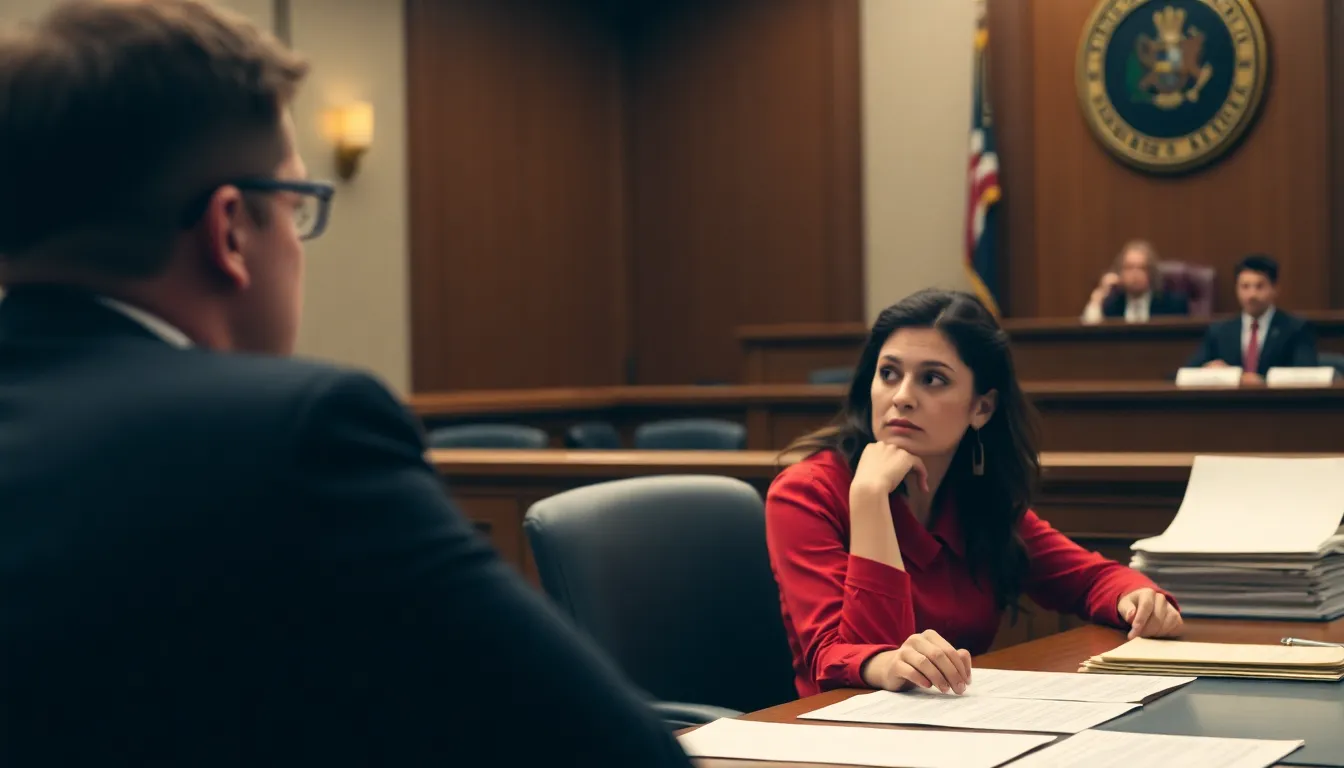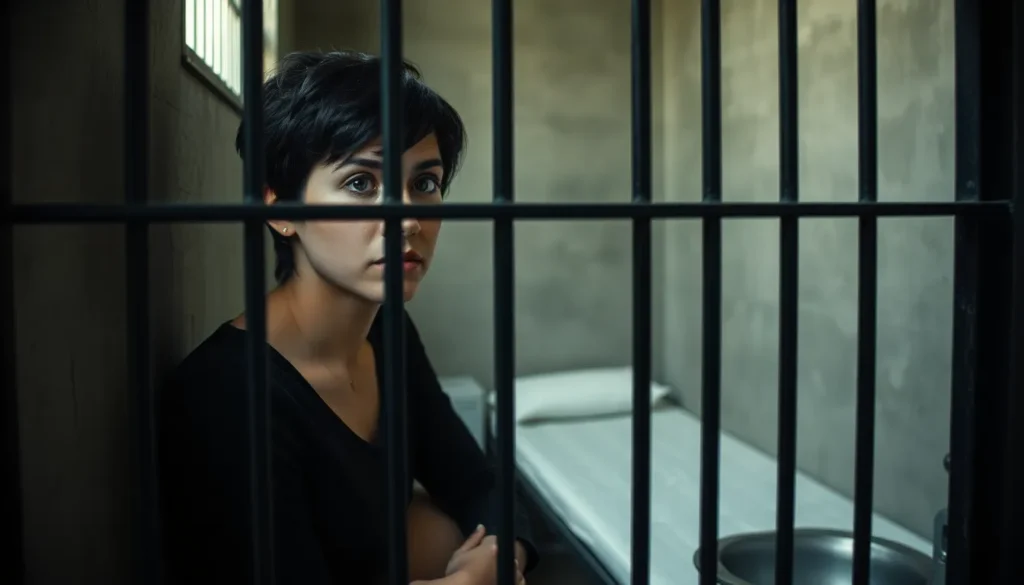Table of Contents
ToggleWhen it comes to true crime stories, few are as bizarre and captivating as Gypsy Rose Blanchard’s. This tale has everything—deception, a mother-daughter duo, and a shocking crime that left everyone wondering how long Gypsy would pay for her actions. It’s not your typical courtroom drama; it’s a wild ride that raises eyebrows and sparks debates.
Curiosity surrounds Gypsy’s time behind bars. Was it a slap on the wrist or a lengthy sentence? As the details unfold, they reveal a complex narrative of survival and resilience. So grab your popcorn and settle in, because this isn’t just about how long she was in jail; it’s about the twists and turns that led her there and what it all means in the grand scheme of justice.
Overview of Gypsy’s Case
Gypsy Rose Blanchard’s case attracted significant media attention due to its complex details. In 2015, Gypsy and her boyfriend were charged with the murder of Dee Dee Blanchard, her mother. Dee Dee’s long history of abuse, including medical fraud, played a crucial role in the case. This fraudulent portrayal had deceived doctors and family members alike, leading to Gypsy’s childhood filled with unnecessary medical treatments.
Documentation indicates Gypsy was subjected to numerous surgeries and medications based on fabricated illnesses. As the abuse persisted, Gypsy’s desire for freedom intensified. She eventually took matters into her own hands, resulting in her mother’s death. In 2016, Gypsy pleaded guilty to second-degree murder. The court sentenced her to ten years in prison, a sentence that stirred debates about victimhood and accountability.
Each year, Gypsy serves a portion of her sentence. Current reports indicate she’s not eligible for parole until at least 2024. Public opinion remains divided, with many viewing her as a victim of severe abuse rather than a criminal. Factors such as her psychological state and the extreme controlling behavior exhibited by her mother are frequently discussed in legal circles. Gypsy’s case continues to inspire discussions on domestic violence and the legal system’s treatment of victims involved in violent crime.
From courtroom proceedings to ongoing media coverage, the layers of Gypsy’s story resonate deeply, underlining the significant issues surrounding abuse, justice, and personal agency.
Timeline of Events

In understanding Gypsy Rose Blanchard’s case, several key events stand out, showcasing her tragic journey through the criminal justice system. The timeline reveals critical moments, from her arrest to the court’s decision.
Arrest and Charges
In June 2015, Gypsy and her boyfriend, Nicholas Godejohn, were arrested in connection with Dee Dee Blanchard’s murder. Authorities found Dee Dee’s body in their home in Missouri, leading to a swift investigation. Both Gypsy and Nicholas faced first-degree murder charges initially. Gypsy’s circumstances drew significant media attention, highlighting her history of abuse at the hands of her mother. Public opinion turned towards understanding her motivations, questioning the ethics of the charges given her victim status.
Court Proceedings
The court proceedings began in 2016, marking a pivotal point in Gypsy’s life. Gypsy pleading guilty to second-degree murder demonstrated a shift in strategy, as it lessened her potential punishment. Sentencing hearings revealed the extent of her mother’s deception, highlighting years of manipulation and control. Ultimately, the judge sentenced Gypsy to ten years in prison. She accepted her fate while drawing attention to the victimization of individuals in abusive relationships. The case sparked discussions on mental health, violence, and justice in society.
Duration of Incarceration
Gypsy Rose Blanchard’s time in jail highlights her complex legal journey. Following her arrest in June 2015, she spent approximately three months in jail awaiting trial.
Initial Jail Time
Initial jail time for Gypsy lasted from June to September 2015. During this period, she dealt with significant media scrutiny and public interest in her case. Facing first-degree murder charges, Gypsy’s experience in custody focused on her transition from victim to suspect. Support from advocates and mental health professionals emerged as crucial during this time, as they recognized her traumatic background. Legal representation also began to emphasize her abusive upbringing in her defense strategy.
Subsequent Sentencing
Sentencing occurred in July 2016, when Gypsy accepted a plea deal. This decision led to her guilty plea for second-degree murder, resulting in a ten-year prison sentence. The court revealed details of her mother’s manipulation, which played a vital role in determining the outcome. Gypsy’s parole eligibility remained set for 2024, allowing for potential reevaluation of her case in the future. Factors contributing to her initial jail time included the nature of her charge and the considerable public interest surrounding her trial.
Public Reaction and Media Coverage
The public reaction to Gypsy Rose Blanchard’s case sparked widespread debate. News outlets reported extensively on the dramatic circumstances surrounding her mother’s murder. Many viewers expressed sympathy for Gypsy, seeing her as a victim of abuse rather than a criminal. Online forums and social media platforms showcased diverse opinions, with some labeling her actions as justified revenge due to years of manipulation.
Media coverage highlighted the complexities of Gypsy’s situation, focusing on her abusive upbringing and the psychological effects of her mother’s actions. Documentaries and news segments further fueled public interest, often portraying her as a tragic figure caught in a nightmarish reality. The sensational nature of the case drew in audiences, leading to heightened scrutiny of both Gypsy and Nicholas Godejohn.
Advocates for victims of domestic violence rallied around Gypsy, emphasizing the need for systemic changes in how such cases are handled. Mental health professionals voiced their support as well, arguing that her upbringing significantly influenced her decisions. Many rallied to her side, advocating for understanding and compassion rather than condemnation.
Public opinion varied widely, with some advocating for her release while others demanded accountability. Petitions emerged calling for leniency in her sentencing, showcasing the divide in societal views on justice and victimhood. Media narratives played a crucial role in shaping these perspectives, often focusing on her story’s emotional and psychological elements. The ongoing discussions around Gypsy’s case underscore the complexities of victimhood, abuse, and the legal system’s response to traumatic circumstances.
Gypsy Rose Blanchard’s story continues to resonate deeply with many people. Her experience highlights the complexities of abuse and the legal system’s treatment of victims. As she navigates her ten-year sentence, the public remains divided on her actions and motivations.
The ongoing discussions surrounding her case emphasize the need for awareness of domestic violence and mental health issues. Advocates continue to push for changes in how such situations are addressed, ensuring that victims receive the support they need. Gypsy’s journey serves as a powerful reminder of the lasting impact of trauma and the importance of empathy in understanding such intricate cases.




